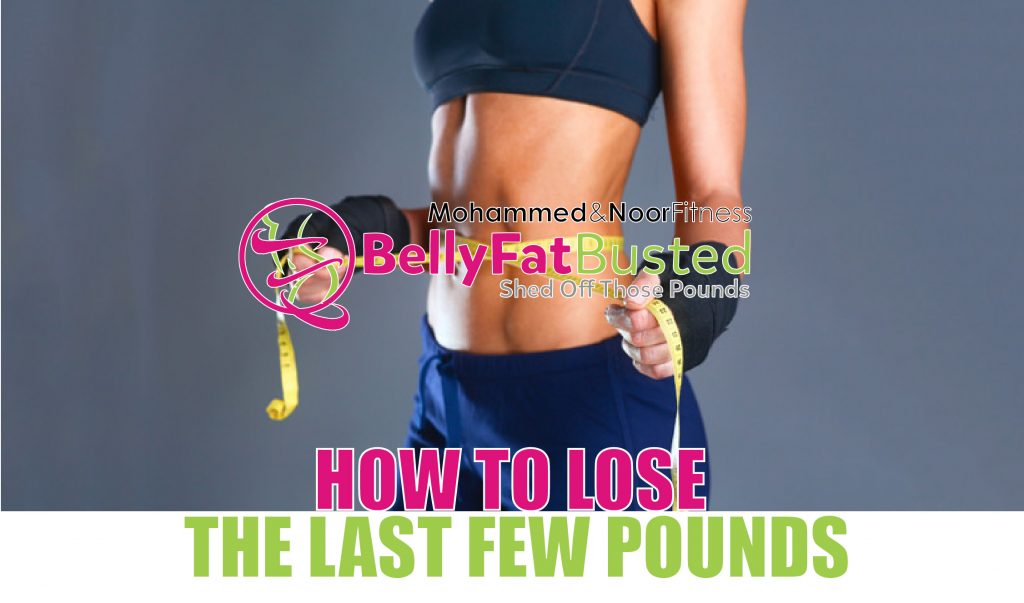
Anyone who’s ever tried to lose weight knows that those last few pounds can be the hardest to shed. If you’re just trying to be generally healthy, this isn’t a big deal. After all, [insert Jersey Shore accent] a little junk in the trunk ain’t never hurt nobody. Frankly, your body is probably better off with a few extra pounds of adipose tissue for use as an emergency fuel supply. Indeed, on a purely Darwinian level, such “wiggle room” is quite comforting.
But there are times when you really want to trim down. Maybe you’re an endurance athlete trying to shed fat you don’t want to carry across tens or even hundreds of miles. Maybe you’re a bodybuilder or a bikini competitor who wants to shine on stage. Or maybe you just want to rock that $1,000 wedding dress.
Either way, if you’re having trouble losing those last few pounds, the solution is usually simple: Eat more.
Wait. What?
That’s not a typo. Reduce the size of your daily caloric deficit (i.e., the number of calories you’re cutting to lose weight), and in all likelihood, your weight loss will resume. I’ve given this advice hundreds of times—and been ignored or hotly debated hundreds of times, which is understandable considering that it sounds absurdly counterintuitive. So this time, I’m going to try something different and do a deep dive into why and how your body fights back when you’re trying to lose those last few pounds.
Keep in mind that this advice is targeted towards people with just a few pounds to lose. My primary source is a review in the Journal of the International Society of Sports Nutrition called “Metabolic adaptation to the weight loss: implications for the athlete.” However, this advice isn’t limited to athletes. A lot of it can apply to anyone who has hit a weight loss plateau while eating at a caloric deficit, regardless of the size of your love handles.
Problem #1: Your hormones go all wonky.
There are a number of hormones involved with digestion and metabolism, and their levels shift depending on how much and what you’re eating. This becomes particularly problematic when you purposefully slash calories to lose weight.
While your brain may want to lose that last bit of chub on your gut, the rest of your body does not. Your endocrine (hormone) system, in particular, doesn’t know you’re intentionally starving yourself, and it doesn’t know how long this famine will continue. When you drop calories super low, your hormones can increase your appetite to motivate you to work a little harder to find food, while slowing down your metabolism and promoting the breakdown of lean mass (muscle) in order to conserve your emergency fuel supply (body fat).
Several hormones impact appetite, but there are two key players. The first is ghrelin, which is produced in your gut. It promotes hunger and has been shown to increase in fasting situations. The second is leptin, which is produced by adipose tissue and decreases hunger—so obviously it shows up in lesser amounts when you have less body fat to produce it.
Energy restriction also induces stress on your body. In so doing, it increases cortisol. In the short term, this stress hormone helps your body adapt to tough situations. However, in chronic situations, it can wreak all sorts of havoc. Not only does it further suppress leptin, but it also preserves fat stores by promoting muscle protein breakdown as a fuel source.
To make matters worse, super-low calorie diets and/or super low body fat have been shown to reduce the blood sugar-regulating hormone insulin (which also helps prevent muscle protein breakdown), as well as metabolism-regulating thyroid hormones.
Simply put, undereating can make your whole endocrine system go haywire.
Problem #2: Your metabolism slows down.
When you undereat, your metabolism can slow—right down to a cellular level thanks to a reduction in something called “proton leak,” which occurs during the production of adenosine triphosphate (ATP), the cellular unit of energy.
ATP is created by a series of chemical reactions within cells, and involves the movement of protons into structures called mitochondria, often referred to as the “batteries” of cells. When you’re eating enough—and have more than enough raw materials to produce energy—the process can be rather sloppy. Some protons escape without giving you any ATP. This phenomenon is called proton leak. It allows your metabolism to adjust to different situations so that you can maintain bodily function, but it also wastes a lot of calories. In tests on rats, it accounted for 20 to 30 percent of basal metabolic rate (BMR), which is the amount of calories you burn just running the bodily functions that keep you alive.
But when you’re not eating enough, your system becomes more efficient and proton leak decreases—and therefore so does your BMR. Technically, your hormones are to blame for this shift. A lack of leptin and thyroid hormones and an increase in cortisol are most likely the cause. But however it happens, the end result is that your metabolism slows, and this problem seemed worthy of its own section, so I separated “Problem #2” from “Problem #1.” Nuff said.
Problem #3: You’re less active (when you’re not working out).
Your BMR is where most of your calories are burned (about 70 percent). Next in line is non-exercise activity thermogenesis (NEAT), which accounts for about 15 percent of your caloric burn. NEAT includes all the mundane movements you make all day such as walking around, scratching your head, talking, and picking your nose. When you’re on super-low calories, your body tries to conserve energy by subconsciously reducing NEAT. In other words, you stop fidgeting as much—and that means you burn less calories.
So what can you do about it?
As I suggested earlier, eat more. The smaller the deficit, the less these issues crop up. Case in point, cortisol. A study on women fed 1200 calories per day (nearly 600 less than the average intake for women) for three weeks showed an increase in cortisol. By comparison, another studyon overweight men and women showed that a more modest 12.5 percent reduction in calories (about 330 and 230 less than the average daily intake for men and women, respectively) combined with exercise did not result in an increase in cortisol. Basically, less of a deficit means less stress, which makes it easier for your body to maintain homeostasis.
I generally recommend increasing your caloric intake by 200 to 300 calories a day each week until things start working. So if you’re currently consuming 1,600 calories a day and not seeing results, go up to 1,800 calories. If that doesn’t work, go up to 2,000 calories a day the next week. Continue until you bust through your plateau.
In practice, those additional 200 to 300 calories might be a piece of fruit and a small handful of raw nuts. The key is to keep your macronutrients balanced as you bump up your calories.
Does a smaller deficit mean you’ll theoretically lose weight slower? Yes. But you should be focusing on the long game anyway. Plus, what you’re doing now isn’t working, so it’s worth a shot.
Another trick is refeeding, or strategically pigging out about once a week in hopes that it’ll balance out your hormones by reversing the stress you’re putting on your body with the deficit. While the science on this practice isn’t terribly solid, there’s plenty of anecdotal evidence from the bodybuilding community suggesting that it works.
One variation on refeeding is zigzagging—a structured series of low-calorie and high-calorie days championed by Beachbody’s former VP of Fitness and Nutrition, the late Steve Edwards.
Finally, if you must drop those calories down, keep protein at higher levels to avoid breaking down lean body mass (muscle) for fuel. What’s a high level? Roughly 35 percent of your total daily calorie intake, according to a study by British researchers. Most Beachbody nutrition plans feature 30 percent protein. That, plus Beachbody Performance Recover and Recharge (or similar protein supplements) will bring you into the 35 percent range.
As I said originally, most of the time, a couple extra pounds isn’t a bad thing, especially if that’s where your body wants to be. But there are times when being extra lean can play an important role in a larger goal. When you’re in this situation, try to shed pounds the same way you train—smartly. You wouldn’t cram several months worth of workouts into a couple weeks leading up to your event, would you? Of course not. So diet the same way. Be patient and methodical. As is usually the case, that’s the best way to get results.



Leave A Reply